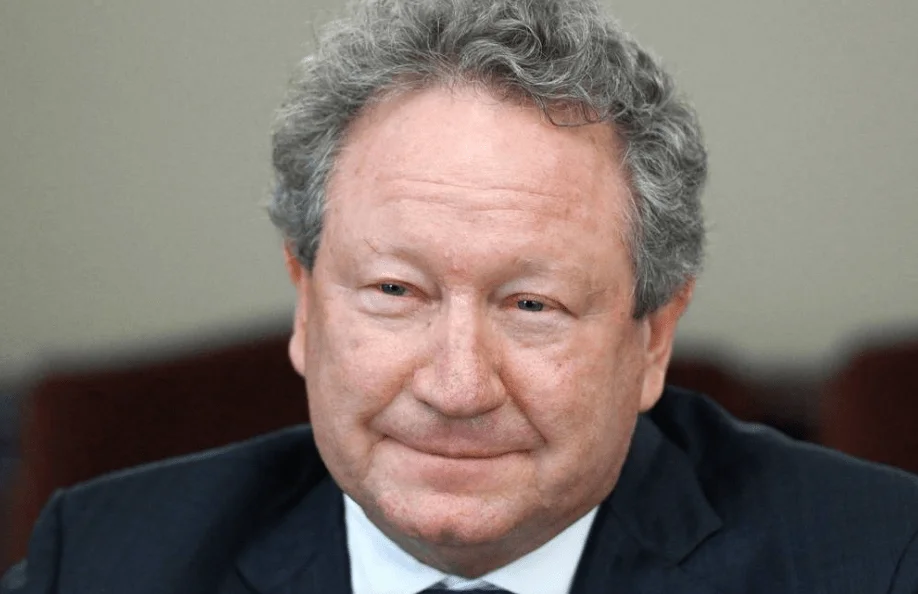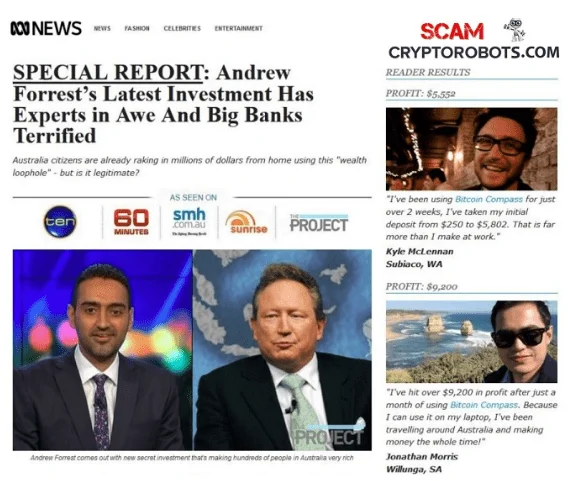Andrew “Twiggy” Forrest, an Australian billionaire, is suing Facebook over alleged fraudulent cryptocurrency adverts that utilized his identity to mislead victims. He referred to this act by Facebook as “criminally reckless.”

The head of Fortescue Metals claims that Facebook is breaking Australian anti-money laundering rules by “knowingly profiting from this loop of unlawful ads” that it neglected to remove.
About the Lawsuit
An initial court appearance is set for March 28 in the Western Australian Magistrates Court, with a committal hearing set for later in 2022. With the assent of Attorney-General Michaelia Cash, Forrest is bringing the charges under Part 10 of the Commonwealth Criminal Code.
According to the court documents, one Australian victim lost $952,000 AUD as a result of the fraud. The scam “defrauded victims out of millions of dollars,” according to court records.
“These scenarios played out in the underlying scam which used Dr Forrest’s name, likeness, and reputation to find victims, who often reported being swindled after believing Dr Forrest was actually endorsing the investment scheme.”
“While we do not know the exact number or identities of the persons deceived as a result of this terrible hoax,” Forrest’s lawyers wrote, “the scope of the harm is huge.” They went on to say that since March 2019, when the scam first started being advertised on Facebook, he has spent “hundreds of thousands of dollars” to dissociate himself from it.
According to the complaint, Facebook’s access to user data has been a major “contributor” to the spread of illicit adverts, “fake news,” and other undesired online content. The company’s inability to remove the phony ads was “criminally careless,” according to Forrest.
According to The Australian, a spokesman for Facebook’s parent company, Meta Platforms, is adopting a “multifaceted approach to prohibit these advertising” by recognizing the adverts, blocking the fraudulent advertisers, and, in some circumstances, initiating legal action.
Forrest, on the other hand, believes that the social media behemoth should do more to combat the spread of fraud on its platform. Forrest claims that the scammers “can’t be readily traced down” because they are largely based overseas.
“The best way to protect Australians is to deter Facebook from allowing itself to be used as an instrument of crime,” he said, adding that “the best way to protect Australians is to deter Facebook through a criminal prosecution from allowing itself to be used as an instrument of crime.”
“Because Facebook has demonstrated no willingness to self-regulate or take simple steps to safeguard Australians from crooks and scammers using its platform, I’ve been left with no choice but to take this action,” he added.

If the Australian courts find Facebook guilty, it might face fines and be forced to change the way it advertises.
Last September, the businessman filed a separate action in the Superior Court of California, seeking injunctive relief. The lawsuit is still pending, with no date set for the civil case.
Fake celebrity-endorsed crypto scams
In 2019, Forrest was one of the numerous Australian celebrities, including Kate Winslet, who was erroneously cited giving testimonials for a bogus cryptocurrency. In one fraud, the celebrities were mentioned in bogus mainstream news articles promoting a phoney Bitcoin investment platform.
The Australian Securities and Investments Commission issued a warning in 2020 about fake celebrity-endorsed cryptocurrency ads, which included Australians such as Hugh Jackman, Nicole Kidman, and Waleed Aly.
Elon Musk, Bill Gates, and Richard Branson are among the luminaries whose images have been used to promote cryptocurrency schemes.
In November 2019, Forrest wrote an open letter to Meta Platforms CEO Mark Zuckerberg, requesting that the platform remove the fraudulent ads and stop using his image in the future.
